If your baby has been acting a lot fussier lately, you might be asking yourself when do babies start teething.
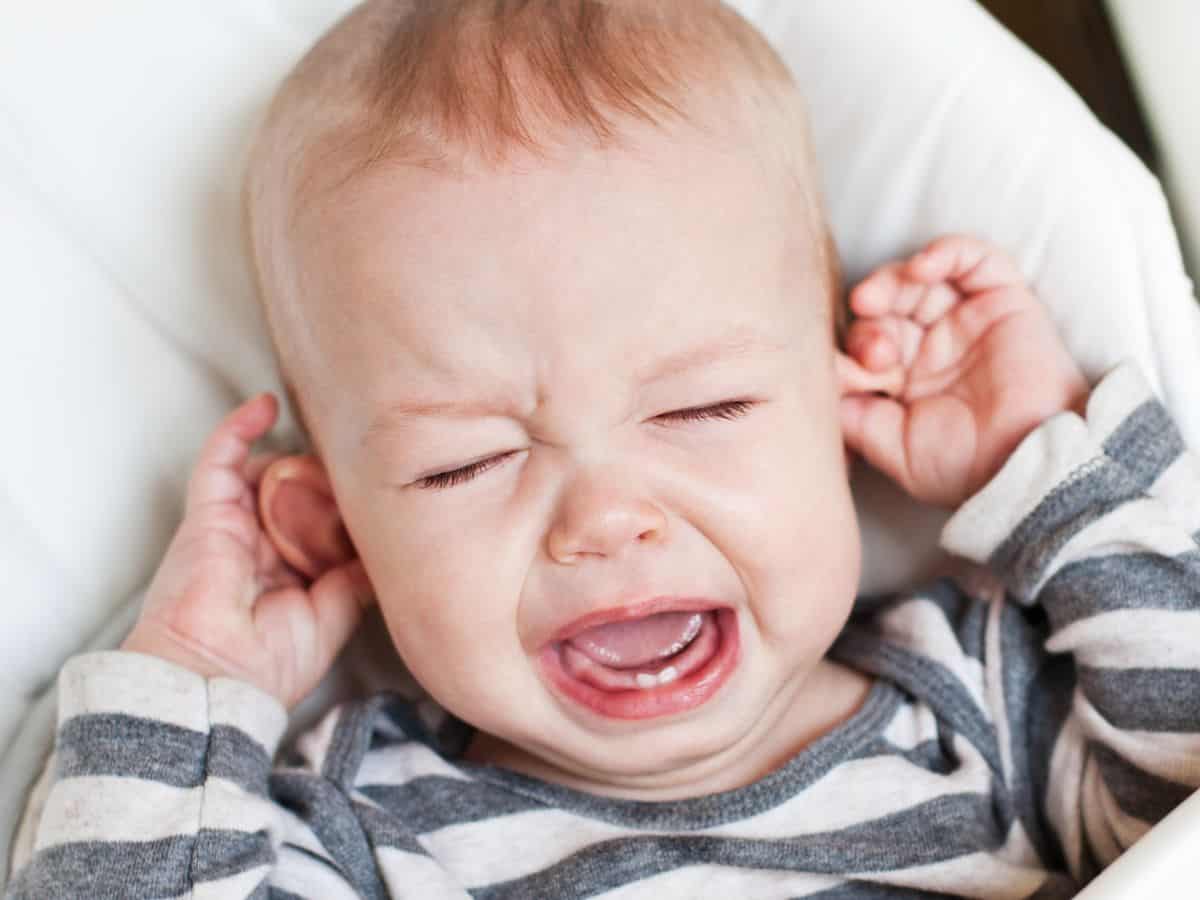
Here's a complete guide on baby teething, and what helps to soothe their aching gums.
Jump to:
When do babies start teething?
Babies usually start teething from 2 to 4 months old. Every baby is different though.
7 Ways to soothe a teething baby
- Using a cold pacifier
- Cold bottle of formula or breastmilk
- Sucking on a wet washcloth
- Teething toys
- Extra cuddles
- Brush baby's gums.
- Apply baby orajel (benzocaine free).
1. Pacifier in the freezer/refrigerator
The first tip on how to soothe a teething baby is optional if you use pacifiers with your little one.
I totally understand if you are trying to opt out, but if you are using them- try this!
I simply put the pacifier in the freezer for about 5 minutes, just enough for it to get cold which feels good on baby’s gums.
We like these glow in the dark pacifiers, but I think it really is a matter of preference for your little one.
Side note: we used pacifiers with my daughter who is now 2 and she got her teeth in much sooner than other kids her age.
I think part of it is due to the fact that she used pacifiers which help break those teeth through the gums.
Fair warning though, after a certain age...it is hard to take the pacifier away.
2. Cold bottle of formula/breastmilk
The second tip for how to soothe a teething baby would be cold fomula or breastmilk.
The same basic principle of the pacifier in the freezer is applied to a bottle.
The cold helps soothe those sore gums, and what better way than to feed baby a cold bottle.
Now, this would only be an option if you are bottle-feeding. Fear not though, there are still other ways to soothe a teething baby!
3. Sucking on a cold washcloth
The third suggestion for how to soothe a teething baby would be to grab a clean washcloth and put some ice cold water on it.
Then, rub it on baby’s gums or even let him/her suck on the washcloth.
Are you seeing a theme here? Cold is going to be your best friend when it comes to soothing a teething baby.
4. Teething toys
The fourth idea on how to soothe a teething baby is to use toys, but not just any toys...teething toys!
The point of teething toys is that it helps baby break those teeth through their gum. The idea is that the more they are chewing on something, the sooner those teeth will erupt.
Here is a complete list of the best teething toys for baby.
What's also nice is that you can find these just about anywhere that has a baby section, or a baby dedicated store.
Now, while teething toys are great, your child might also like sucking on their hand too.
It really is a matter of finding what works for your baby and then just repeat, repeat, repeat!
5. Extra cuddles!
When you are faced with the question of how to soothe your baby, this next one might seem like an obvious thing.
Let’s face it, giving baby extra cuddles while they are fussy helps.
Not that you really needed another reason too, but well now you have one!
Give your baby lots of extra cuddles and love and remember that this teething phase will not last forever.
6. Brush those gums
Another way to know how to soothe a teething baby is with a baby toothbrush.
Brushing baby's gums will not only feel good, but can also help break those teeth through their gums sooner!
Not only that, it is also a great way to get into the habit of good oral care.
This will teach your little one from an early age about brushing their teeth, and hopefully, instill a love of it!
(Not kidding, my daughter loves brushing her teeth, and we started out when she was like 3 months!)


7. Baby Orajel (Benzocaine Free)
Update: If you haven't heard already, the FDA announced a huge recall of baby orajel due to the safety concerns with benzocaine in it.
You can read the full article here about the recall.
Now, baby orajel was forward-thinking to come up with a benzocaine free cooling gel for teething (pictured below).
It's also not available everywhere. I guess it will take some time to know if it is helpful in soothing a teething baby.
What are the signs of teething?
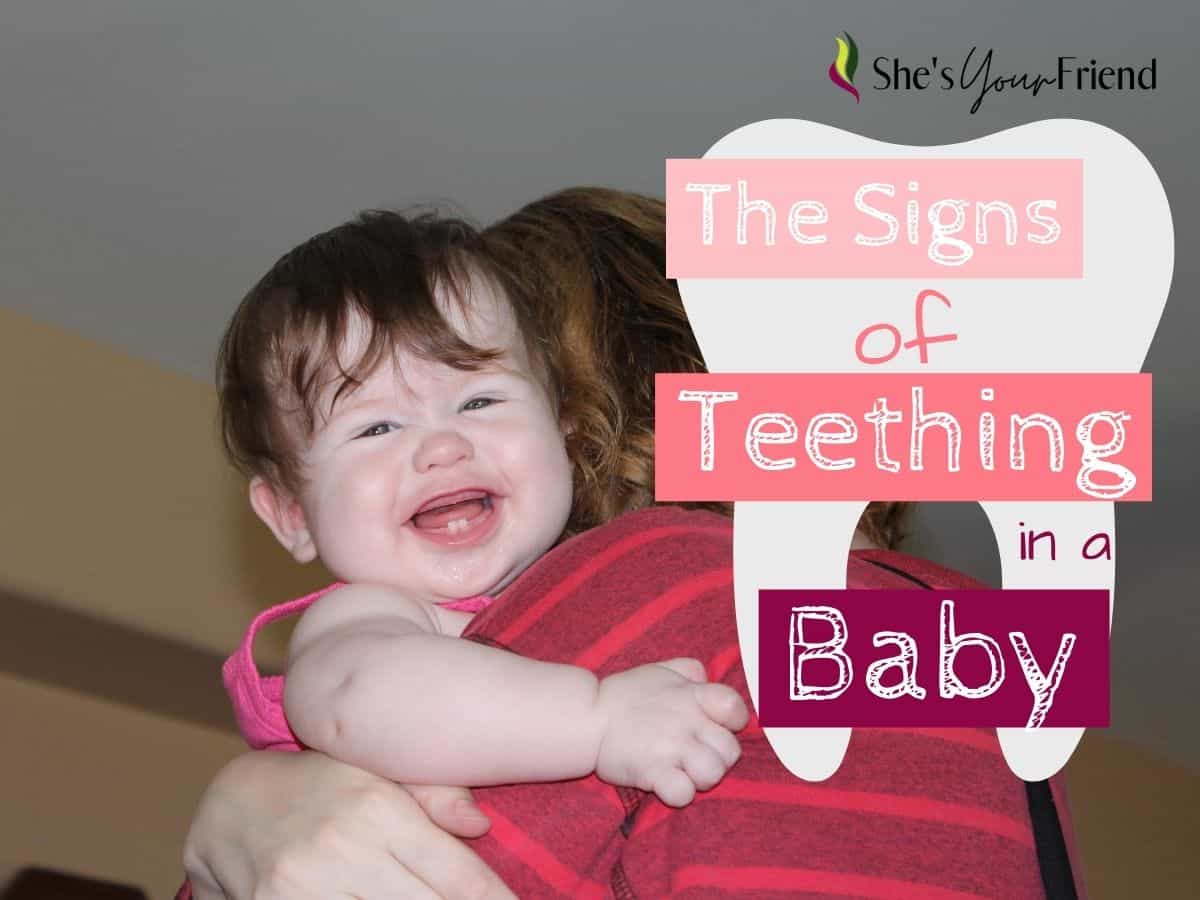
- Baby drool...and lots of it
- Baby starts sucking on everything.
- Baby will be fussier than usual.
- Baby will have weird poop.
- Teeth nubs start to come through their gums.
1.Drool...and lots of it.
One of the first signs of teething in a baby is drool. It might start off as a small amount, but only increases the older they get and the more teeth they are trying to push through their gums.
You will notice their outfits might start getting saturated with drool in the front, so keep an eye out for that.
2. Sucking on everything
Another one of the signs of teething in a baby is that they will start sucking on their hands/fingers. It's fairly harmless, until they actually get a tooth and then they accidentally bite themselves...then you have problem.
It really isn't limited to sucking on their hands though, because anything within grabbing distantce is fair game.
3. Fussier than usual
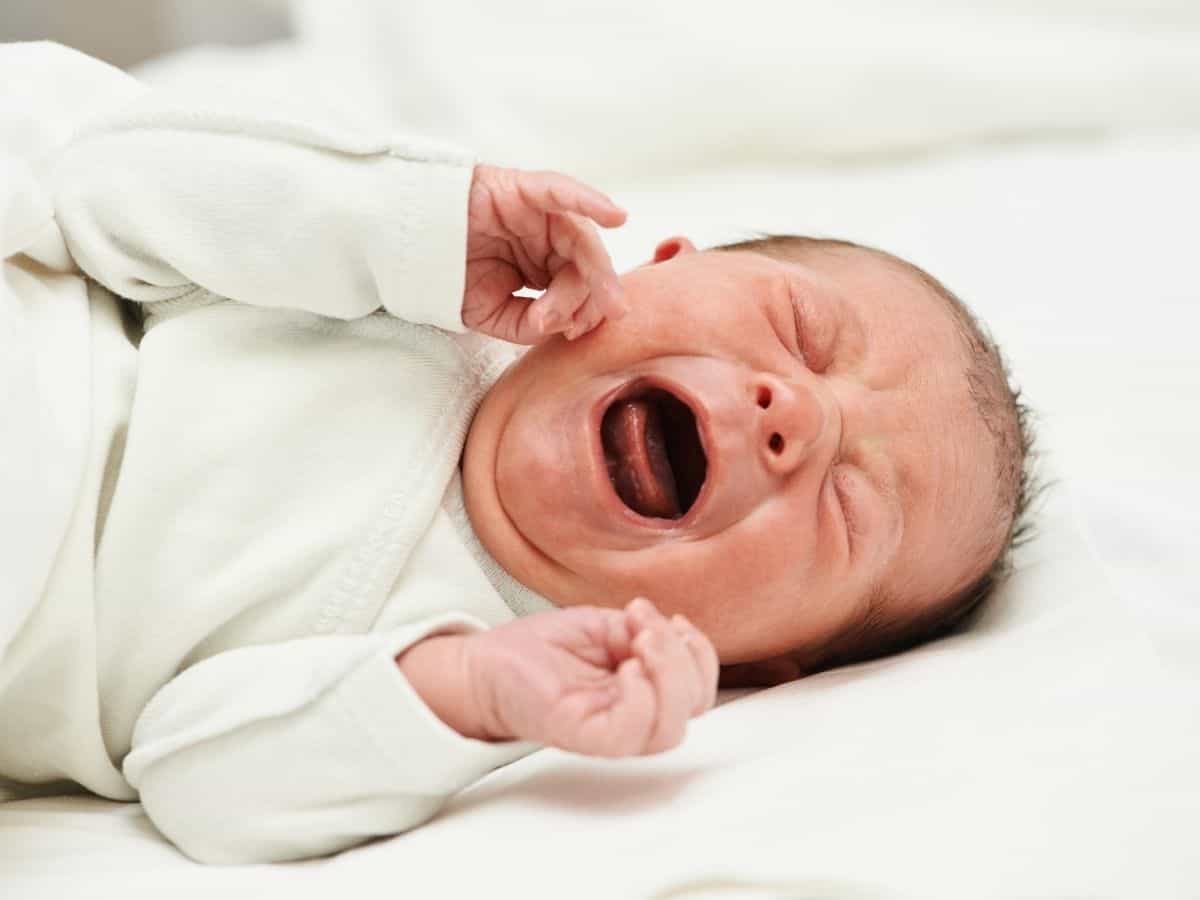
Babies cry, that's normal, but one of the signs of teething in a baby is being fussier than usual. If your baby isn't hungry, he/she has a clean diaper and isn't sick, then they might just be fussier because of teething.
Related: Baby won't nap (here's why!)
4. Weird Poop/diarrhea
This one goes back to the drool. Sometimes that drool stays in their mouth and they swallow it (not a big deal), and this excess saliva makes their poop a little weird.
TMI: with both of my kids, they had an almost mucus-like or slimy residue mixed in with the poop. When I asked their pediatrician, he informed me that it was most likely due to them swallowing an excess amount of drool during...you guessed it...teething!
5. Teeth nubs sticking out
One of the last signs of teething in a baby is seeing or feeling the first two teeth stick out (it will usually be the bottom center teeth). As they break in those new found teeth, they will start the cycle over again with all their other teeth.
You can find a great list of the best teething toys for babies here to also check out!
FAQ
The most common signs are drooling, sucking on fingers and toys, being fussier, and weird poop (because of the drool).
It's definitely possible! Babies can start teething anywhere from 2-4 months old.
When my kids were babies, they seemed to feel much better after the tooth popped through the gum.
There are lots of things you can do to help sooth your baby's teething gum in the mean time including a freezer pacifier, teething toys, and brushing baby's gums with a special toothbrush.
As parents, we never like seeing our children hurt or in pain.
Sometimes it can be hard to know how to soothe a teething baby but just remember these 6 tips: baby orajel, pacifier in the freezer, cold formula/breastmilk, cold washcloth, teething toys, and extra cuddles.
While teething may last quite some time, it's important to remember it won't last forever. I hope this helps you with your teething baby!

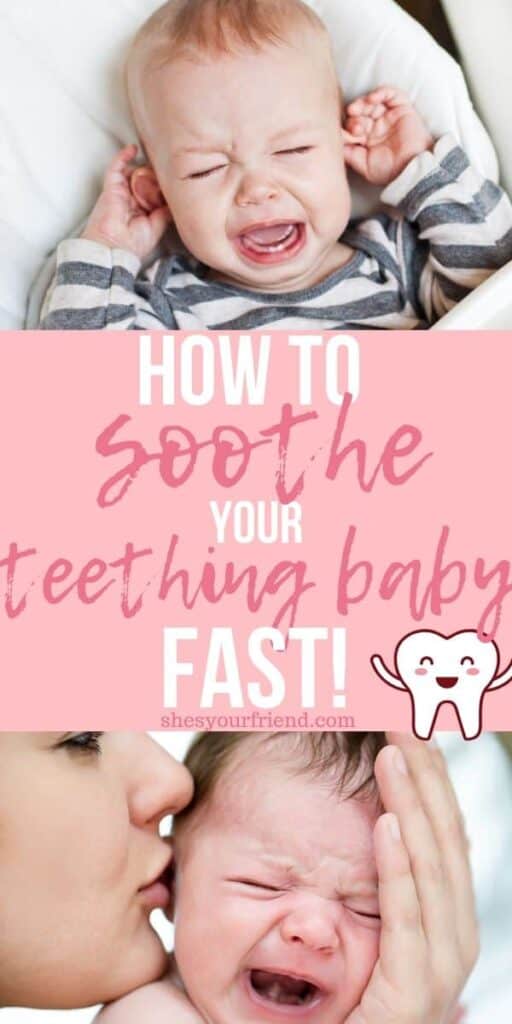

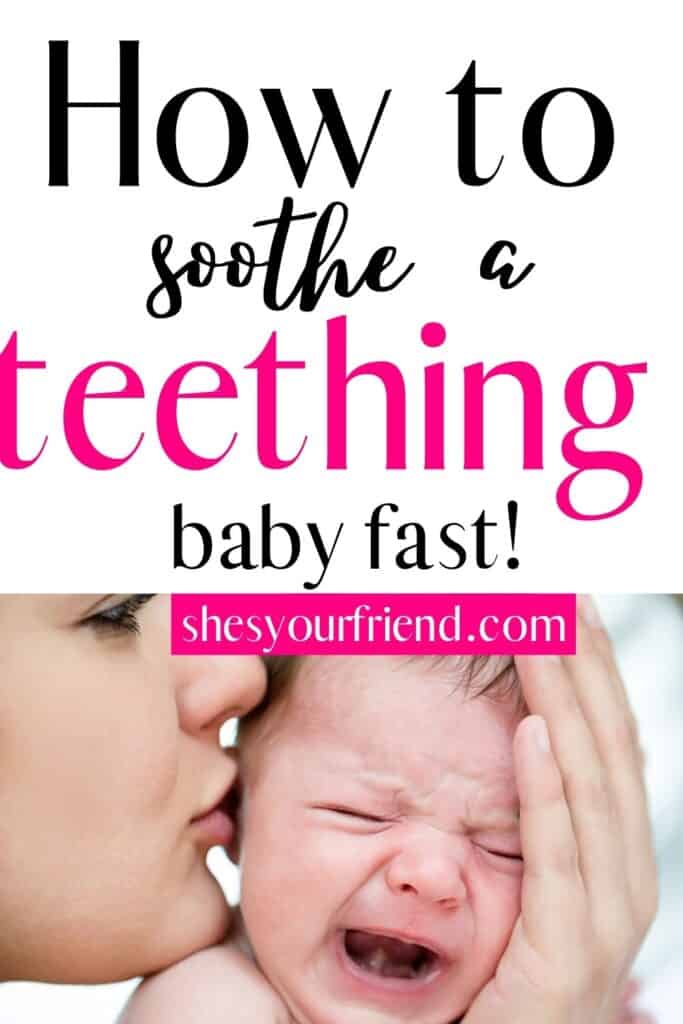
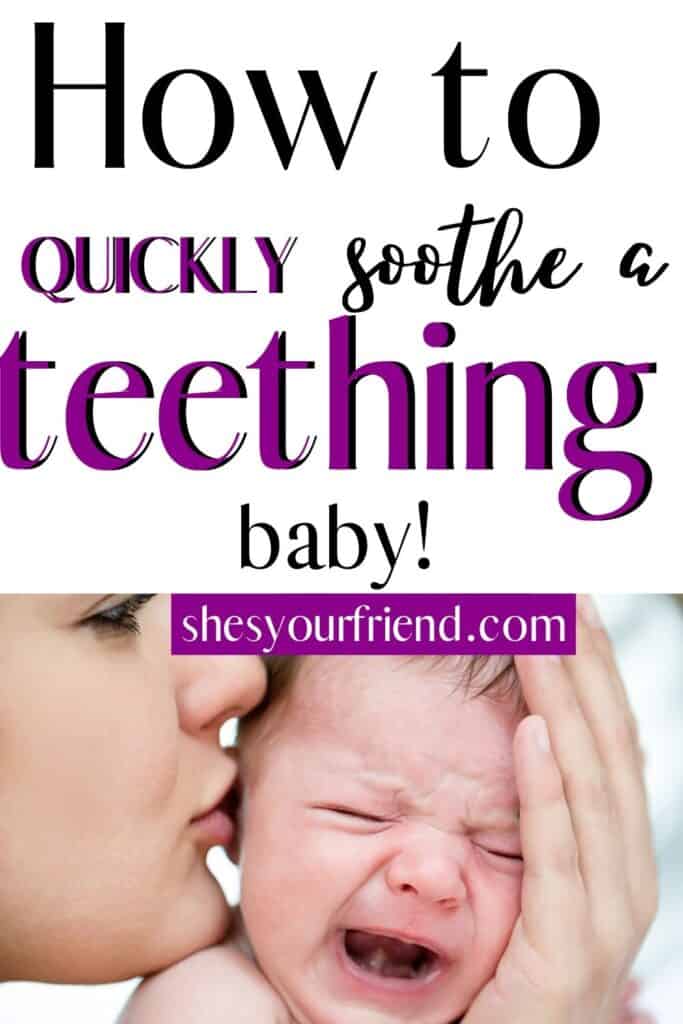

Join the Discussion